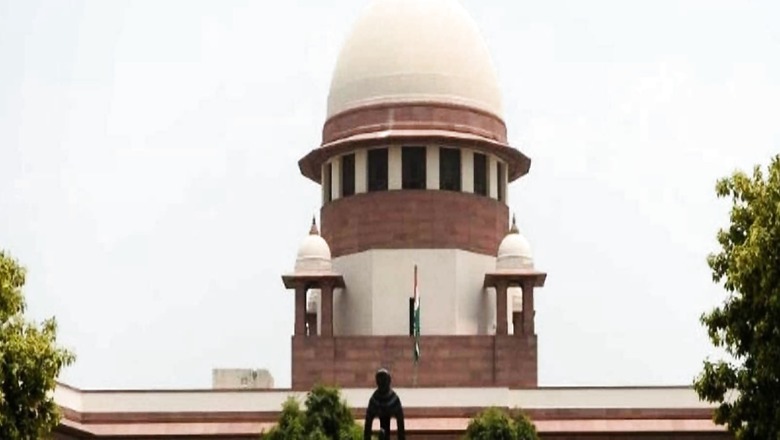
views
The Supreme Court has issued notice to Centre on plea by a Mumbai-based seven-year-old boy and his Parsi mother challenging the social and religious ostracization owing solely to factors of lineage, ethnicity and race consequential to the fact that woman married a non-Parsi.
A bench comprising justices S. Abdul Nazeer and Krishna Murari sought a response from the Centre on a joint petition by the mother and son.
The plea argued that Parsis are a race and ethnic group and ostracization of a Parsi Zoroastrian and her offspring on the grounds of her marriage to an individual of a different lineage, race or religion is contrary to basic human rights and the fundamental rights guaranteed by the Constitution.
During the arguments on the matter, the bench observed that contentions raised in the plea were already covered in a reference made to a larger bench following the Sabarimala judgement.
The plea said women should be free to exercise the personal choice without having to face the consequence of being ostracized from the society, community and religion she was born into. “This Petition pertains to the latter issue and asserts the right of a woman to belong to the community and religion into which she was born irrespective of who she marries”, added the plea.
After hearing arguments in the matter, the top court agreed to examine the plea.
The plea claimed that a section of the Parsi community believes that they are racially superior being of Aryan descent and insists that intermarriage with other races “dilutes” and “contaminates” their ethnicity.
The plea contended that petitioner’s vital rights under Article 14, 15, 19(1)(a) and 21 of the Constitution are threatened and her rights to practice and profess the religion of her birth, faith and choice after marriage with a non-Parsi even under the Special Marriage Act 1954 as a consequence of marriage of a Parsi Zoroastrian woman with a man of any other community or religion stand vitally affected.
“Thus, ex-communication of women is considered to be the price to be paid for intermarriage”, it added.
However, the same treatment is not meted out to Parsi males marrying a non-Parsi and their offspring from inter-marriages, the plea added.
The petitioners urged the top court to issue direction to declaring the practice of excommunicating Parsi Zoroastrian women for marrying non-Parsi men as being discriminatory and unconstitutional.
The plea also asked the apex court to strike down judgement of the Bombay High Court passed in 1908, which had held children of intermarried Parsi Zoroastrian men to be within the meaning of Parsis, while denying the same ‘status’ to the children of intermarried Parsi Zoroastrian women.
Read all the Latest News, Breaking News and Assembly Elections Live Updates here.

















Comments
0 comment